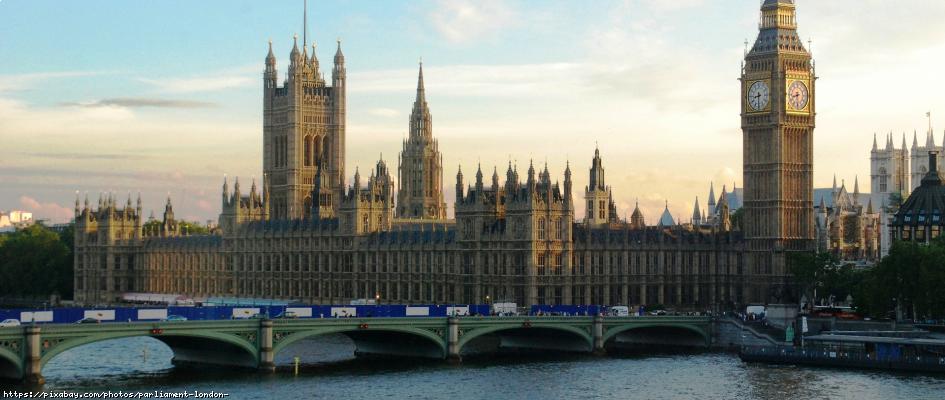Following almost a decade of coalition governments, hung parliaments and uncertainty on everything from Scottish independence to Brexit, the December 12th UK General Election returned a decisive result, with Boris Johnson’s Conservative Party winning a significant majority.
If you’re a small business owner, chances are that you’ve been feeling the effects of all these years of political, economic and social uncertainty, and you might now be wondering what comes next, what does the election result mean for you?
One aspect of business that the result will have particular significance for is the UK’s growing freelance workforce. The IPSE (Association of Independent Professionals and the Self-Employed) currently puts the UK’s freelance population at 4.3 million workers, or around 15 per cent of the UK’s total.
As a small business owner, it’s very possible that you employ freelancers and their importance to the UK economy is forecast to continue growing. In this piece we’ll examine what the election result could mean for the UK’s freelancers, and the companies that employ them.
Brexit
One benefit of the Conservatives forming a majority government is that it provides some long overdue certainty on the direction of the Brexit process, potentially bringing to an end the uncertainty that has been plaguing the freelance industry in the UK for almost four years.
With a majority government in place, it now appears unlikely that the UK will leave the EU without some form of a trade deal in place, something which should positively impact confidence among the freelance sector.
However, with Brexit now all but certain to go ahead in 2020, the way small businesses like yours hire freelancers could change. There will likely be a reduction in the number of EU nationals freelancing in the UK (due to a combination of legislation and deeper social uncertainty) meaning that the freelance talent pool might become smaller and dominated by UK nationals.
Another potential issue is the reverse of this, as UK freelancers may now similarly find it more difficult to work for EU companies. This could lead to an uptick in freelancers seeking more reliable, permanent work, but overall, this is unlikely to offset the continuing growth of the freelance sector.
IR35
Arguably the biggest issue affecting the UK freelance sector this year has been uncertainty caused by April 2020’s scheduled changes to off payroll IR35 legislation for private sector workers. The pending legislation will essentially seek to better combat “tax avoidance” by freelancers and the companies that engage them (off-payroll).
The legislation has caused huge concerns in the world of freelance and self-employed workers, with a growing list of companies of all sizes saying that they will no longer engage limited company contractors in order to avoid being impacted by the “draconian” new rules.
The Conservative Manifesto, surprisingly, made no mention of IR35 changes, but Chancellor Sajid Javid has promised to review them ahead of their implementation next spring, a statement that is thought to have won the Conservatives a significant number of freelance votes.
However, with a government Budget not due until February next year, there is still likely to be a considerable amount of IR35 related uncertainty for both freelancers and companies for at least another few months.
Julia Kermode, Chief Executive of the Freelancer & Contractor Services Association (FCSA), said February would be “too late” for a review of the changes, adding: “If they don’t delay then the promise was nothing short of an arrogant and disingenuous move to secure votes. Many businesses have already invested heavily in preparing for the changes and given the legal requirement for reasonable care, it is unrealistic to press pause for a potentially meaningless review to take place. If the Government wants to avoid utter chaos and shambles, businesses need clarity now.”
Conservative policy
While Brexit and IR35 will continue to dominate the discussion for a while yet at least, Prime Minister Boris Johnson has said that his party’s “manifesto sets out plans to launch a review into how we can better support self-employed people – including improving their access to finance and credit, making the tax system easier to navigate, and examining how better broadband can boost homeworking."
Other proposed policies include an increase the National Insurance threshold and a review of business rates. The Conservatives have also stated their intention to crack down on late payments (a constant issue within the freelance world) and to “strengthen the powers of the Small Business Commissioner.”
While all these policies will sound good to freelancers in theory, the previous years have taught us that things are rarely that straightforward in politics. Brexit and IR35 are the two big issues for freelancers and the companies that employ them, and the coming months will see both come to the fore, with their eventual outcomes likely shaping the next few years for the UK’s freelance sector and the small businesses, like yours, that both fuel and rely on it.


